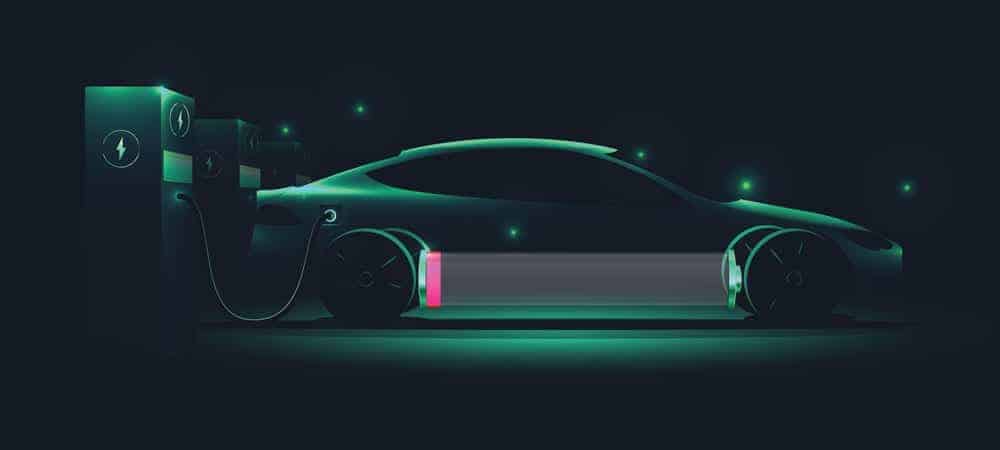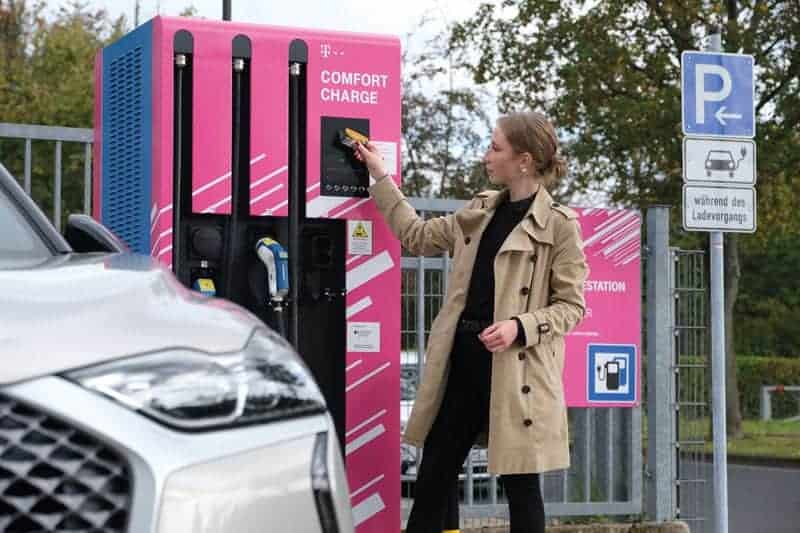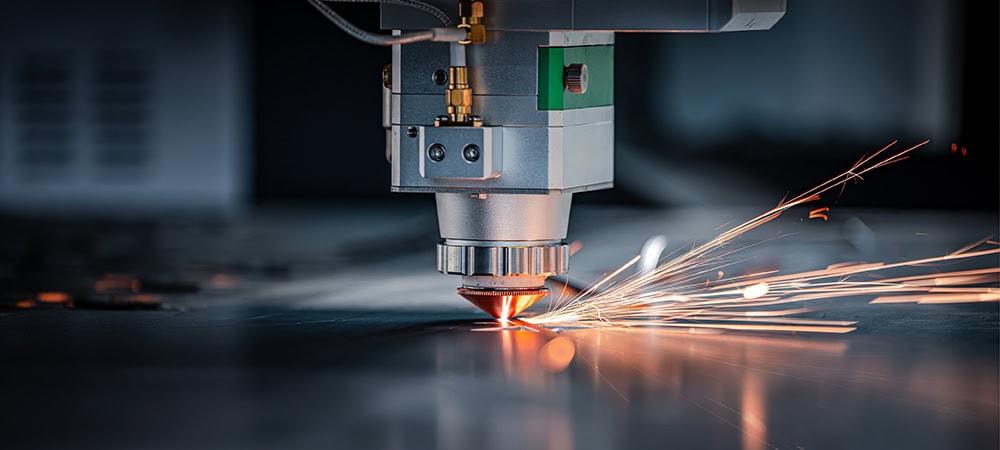Comfort Charge


With the help of government subsidy programs and increasing consumer acceptance, the hoped-for momentum is now coming to the climate-friendly cause - and presenting infrastructure providers like Comfort Charge with the challenge of reliably supplying charging power even in the face of increased demand. As the operator of a nationwide charging network, the Bonn-based start-up relies on T-Systems' SAP expertise to ensure not only full batteries at all times, but also transparent billing processes.
In 2017, the German Federal Ministry of Transport and Digital Infrastructure (BMVI) set an important signal for forms of mobility that represent an alternative to the classic internal combustion engine with its "Immediate Clean Air Program". In addition to gas-powered city buses and the first local trains powered by fuel cells, special attention is currently being paid to e-mobility. State-wide support measures such as the innovation premium for the purchase of an electric vehicle are intended to promote the desired spread and are indeed currently enjoying great popularity.
The government's high benchmark: seven million electric vehicles are to be registered by 2030. To ensure that the growing e-traffic can flow smoothly, there needs to be a nationwide network of charging stations - and smart processes and applications that ensure smooth cooperation between the players involved and transparent billing processes in the background.
Synergies for full batteries
Charging Point Operators (CPOs) like Comfort Charge are well prepared for the e-boom with their nationwide charging network. Founded at the end of 2017 as part of the Telekom Group and a sister company of DFMG Deutsche Funkturm, the start-up currently operates 148 fast-charging stations across Germany, each with a capacity of at least 100 kilowatts, and numerous AC charging stations, both for Telekom employees and in public spaces.
When it comes to expanding the charging network, Comfort Charge benefits from the Group's expertise in infrastructure provision: Deutsche Funkturm operates and maintains radio towers and masts, providing the necessary technical underpinning for Telekom's cell phone network as well as other mobile network providers, for private and public TV and radio broadcasters, public authority radio and amateur radio operators.

"The decades of experience of our radio tower colleagues in managing deployment structures is a huge plus, as is the fact that we can build on Telekom's existing infrastructure"explains Patrick Eberwein, Managing Director of Comfort Charge. In addition to the Telekom locations, where medium-voltage systems are already in place, the charging network operator uses the cable feeders required for the fixed network and Internet.
"The gray boxes on the side of the road are commonly known".says Eberwein. "We're equipping it with its own power supply and a digital measuring point, adding the function of a charging station." This is not only an advantage with regard to the necessary investments, but above all good for the cityscape - the citizens are spared additional, space-consuming superstructures.
Energetic collaborations
While Comfort Charge is responsible for the physical infrastructure, negotiates parking spaces for e-fueling and ensures that the electricity flows smoothly at the charging stations at all times, e-mobility providers (EMPs) handle the business from the charging station. They make the charging stations accessible to consumers - which can be both private customers and commercial vehicle owners. Customers receive so-called charging cards with which they can identify themselves at an e-mobility station and start the charging process.
Many EMPs also work with charging apps that rely on smartphones instead of customer cards. The EMP also handles setting the rate structure and billing e-vehicle refuelers. In addition to this model, Comfort Charge enables ad hoc charging, which can be done cashless and without a contract with an EMP.
Whether ad hoc or EMP, in order for the customer to receive a transparent invoice in the end, heterogeneous data from diverse sources must converge in one system. This is what Comfort Charge Managing Director Eberwein has to say: "The prices of the electricity suppliers, purchased charging quantities per column, the contract data of EMP customers, and access to payment service providers all have to be integrated with each other. This requires a powerful and reliable backend - and an entity that handles clearing, i.e., the harmonization of billing data vis-à-vis e-mobility providers."
SAP billing processes
In order to meet the high clearing requirements, Comfort Charge worked with T-Systems to implement an SAP-based platform solution for B2B business. The project began in the second quarter of 2019 and, according to Gerhard Klein, who as SAP Solution Designer was responsible for implementing the billing application, "an ongoing project that grows along with Comfort Charge's infrastructure and requirements."
The first expansion stage has already been successfully completed at the end of 2019; with the adjustment of the VAT rates, the team has successfully implemented another important project phase as of July 1, 2020. Incidentally, when it comes to evaluating the collaboration, Comfort Charge Managing Director Eberwein and SAP Project Manager Klein are in agreement: the project is a successful example of how well agile collaboration can work. The open exchange between the Comfort Charge and T-Systems teams meant that everyone involved benefited from the experience of their colleagues and was able to contribute their own strengths.
Transparency and attractiveness
The close cooperation of all SAP specialists helped to better understand the market-related challenges of the customers. "Unfortunately, there are still reservations among end consumers when it comes to electromobility"explains Klein. "Charging takes too long, he said, and electricity prices at public charging stations are much higher than from home outlets." The industry could only overcome these prejudices through clear communication and equally transparent processes in the background systems.
Klein continues: "With our SAP solution, we have added an important building block for transparent and efficient billing processes to Comfort Charge's IT environment." The platform-based and fully automated B2B system is used to settle charging data between Comfort Charge and the various e-mobility providers - and creates stringent financial processes by harmonizing the sometimes quite heterogeneous data from the systems of the cooperating EMPs.
Agile solution grows with you
The market for e-mobility holds great potential - but as the experience of recent years has shown, it is also difficult to predict. The fact is that both operators of charging infrastructures and e-mobility providers must be able to ramp up capacities quickly. "This only works smoothly if the systems in the background can be scaled without restriction. This is where our SAP services come into play: Both our deployment infrastructure and the application itself are almost infinitely scalable.", says solution designer Klein.
In addition to the pronounced scalability, the application's ease of maintenance also brings high added value to Comfort Charge. The development team has made the use of standards and the careful combination of existing SAP modules its maxim. "We have designed the system so flexibly that almost any billing scenario can be represented without the need for in-depth configurations at the programming level," says SAP expert Klein.
Great potential
"In addition to working with EMPs and ad hoc charging, we offer another service that is of particular interest to fleet customers." explains Patrick Eberwein. Business customers have the option of commissioning the construction of their own dedicated charging infrastructure - the hardware subsequently either belongs to the company itself or remains in the hands of Comfort Charge.
For B2B customers, however, it is not just the charging stations themselves that are of interest, but the data management of charging networks. "The fact that we maintain our own backend as a CPO is a big competitive advantage for us"emphasizes Eberwein. Comfort Charge can thus offer its B2B customers all the important interfaces for transparent and automated billing processes. (pmf)







